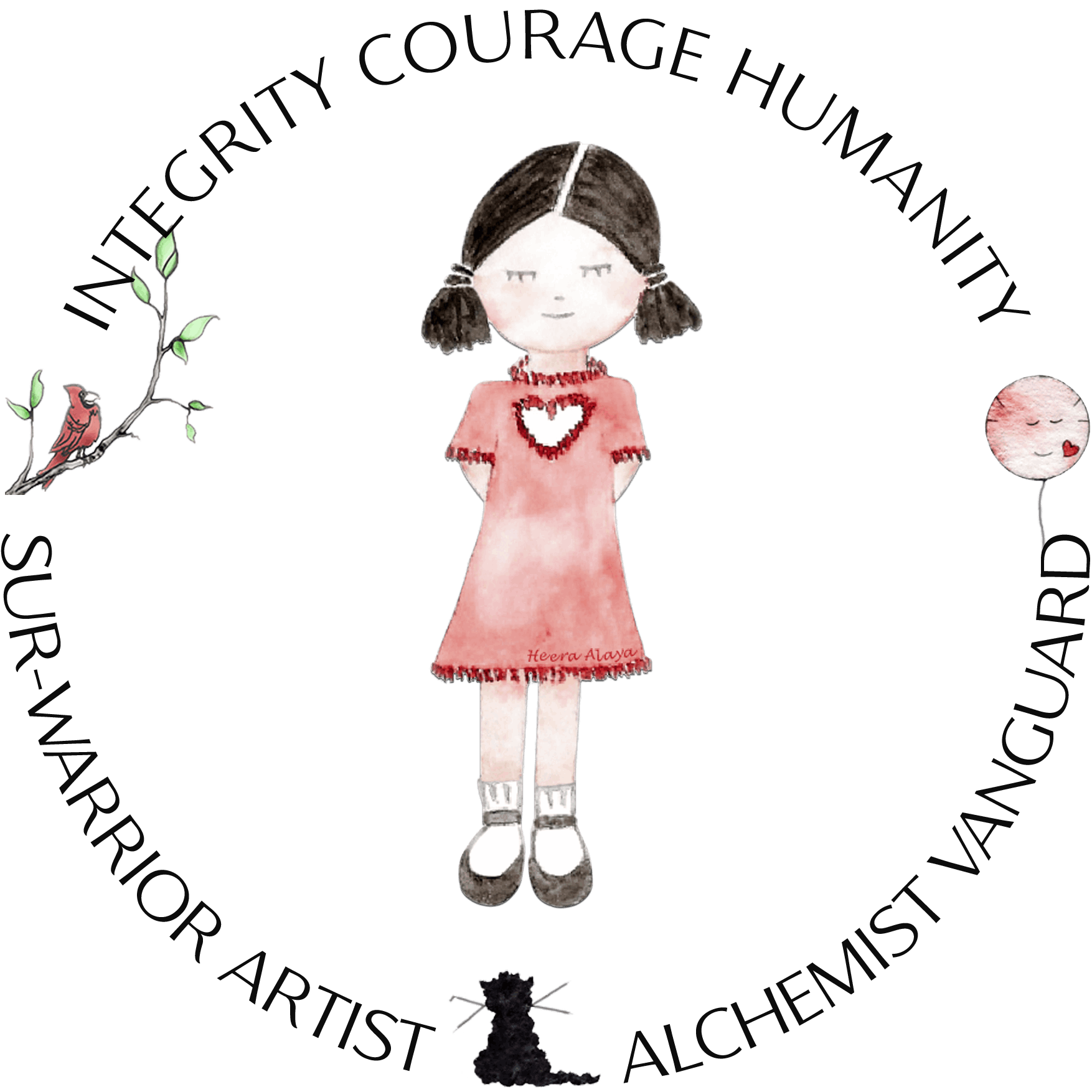
“A hotel housekeeper knew she had rights,
which she would not have known 20 years ago.
She came forward and told the truth.”
GLORIA STEINEM
Feminist Activist and Writer
December 8th, 2011
OPEN WINDOWS | In Conversation
Gloria Steinem is a renowned feminist activist and was a leader in the women’s liberation movement. A prominent writer, Ms Steinem is the co-founder of Ms Magazine, an American feminist magazine, and has authored books that include Revolution from Within: A Book of Self-Esteem; My Life on the Road and Outrageous Acts and Everyday Rebellions. [Updated] Gloria Steinem is the recipient of the Ban Ki-moon Award for Women’s Empowerment, Equality Now’s international human rights award and the American Humanist Association’s Humanist of the Year (2012). In 2013, President Barack Obama awarded Ms Steinem the Presidential Medal of Freedom.
Heera Alaya: What earliest observations indicated women deserved better and could do more?
Gloria Steinem: There was no women’s movement when I was growing up or in college, at least nothing visible. So I thought that the only answer was individual; you had to work very hard, behave and follow the rules, and that by being a “good girl”, you would succeed. It took me a long time to realise that was not true. I was in my mid-thirties before I realised that there had to be a movement and that the problems were not individual but systemic. And so we had to come after them as a group.
What propelled you?
Well, in the first instance, what propelled me was that I understood I was treated unequally—I could not get political assignments as a journalist (when less experienced men got those assignments); I had difficulty getting an apartment, and I got paid less, but I kept thinking if I just tried harder, it would be all right.
And then two things woke me up. I went as a journalist to cover an abortion hearing because New York State was trying to decide whether to liberalise its abortion laws. This hearing was before the Supreme Court decision, and I heard women standing up and telling the truth about what it was like to enter a criminal underworld here to get an abortion. I had had an abortion; one in three women needs an abortion at some time in her lifetime, so why was it illegal? So that was one big revelation. Another was that I was working with and writing about women on welfare, and they had analysed the welfare system as if it were a gigantic husband. The analysis was very funny—that it was jealous, looked under your bed to see if there were shoes of any other man. So those two things woke me up to a burgeoning women’s movement and understanding that no single person could do this by oneself.
Was it challenging to write about women’s issues when you started?
Yes, we were a joke. When we finally began to get serious opposition, it was a step forward because anything related to women couldn’t be serious; it was a joke somehow. Or, if it wasn’t a joke, it was detracting from important problems. So even on the left, otherwise, very progressive men would say, “But that’s distracting from questions of class or race,” not understanding that questions of class or race start with questions of sex and gender.
Growing up with two classes of human beings in your own home, one that cooks and one that eats, one that is less important than the other by birth, probably prepares you to accept the equally manufactured differences of race or class outside your family.
Did you have moments of feeling alone or vulnerable?
Well, I was not alone. That is why it is so important that we have at least a few women friends we work with and meet. If we are alone, we feel we are wrong, and the system is right, as if we are crazy and the world is right. Because this was a contagion, some women were already activists and became activists. I do not think it is possible to do it entirely by oneself; you need companionship. We are communal animals.
Much has been written and spoken about women’s rights and equality; as one of the founders and leaders of the Modern Women’s Movement, how would you say this has translated into reality?
Generally speaking, waves of profound social and political change have stages. The first stage is usually the idea that it is possible to change. That race is not biological or even exists, or that gender roles are biological instead of created. People are people, but if we live in a structure that divides people that way, the first step is consciousness. It is understanding that it does not have to be this way; it can be different.
As I say, hope is a form of planning. And that stage goes like wildfire, very quickly because it is within our control. We can talk to each other; we can have this new understanding. We can act together. It still goes on. You know, people are still making that discovery, but a critical mass of people had made that discovery, certainly by the mid and late 70s.
Then two things happen. One is that you can make an institutional change because you have majority support, and the other is that you get a backlash because you have majority support. Ever since the 80s, we have had a profound backlash, but it is inevitable. If you have a front lash, you will have a backlash from the people who still think they should be higher in the hierarchy that existed up to now.
So the idea we had in the 70s is only somewhat institutionalised now, and of course, we have had continued understanding. For instance, in the beginning, we discussed equal pay for equal work. Then we realised that the mostly female professions, what we call the pink-collar ghetto—the nursing and service professions—had the same level of expertise as professions, say, pharmacy, which was mostly male. Equal pay did not help there, so we needed to establish comparable worth as a standard.
We still do not have equal pay, but we have moved towards it, 17 cents in 40 years. We have the concept of comparable worth, but that has not been reached yet. Even a parking lot attendant may make more money than a child care attendant, not because we care more about our cars than our children, but because the first profession is mostly male, and the second is mostly female. Besides that, we still have a big step in the future, which is to attribute value to productive but unsalaried work. So the work of child-rearing, taking care of relatives who are ill, for example, is a third of the work in the country; the country could not go on without it, and we could make it economically visible by attributing value to it at replacement level, and making that tax-deductible.
Why is it so challenging to break barriers?
Because people are profiting from the way it is. You know women are the biggest cheap labour source in the world, cheap or unpaid.
Women often make critical decisions within the home, driving a significant percentage of the consumer market. Why can’t we influence society to treat us better?
Women make about 80 percent of purchases at the point of sale, including men’s underwear, because it is often part of a woman’s job to be the designated family shopper. That is an unequal burden—ask men to buy their underwear. But to the extent that it remains true of household purchases, this gives women vote power and dollar power.
For instance, I would not buy a toothpick from Walmart because they discriminate against female employees and are the biggest foreign employer in sweatshops in China.
Women could write to the President of Walmart and tell him they are not buying low prices with such a high human cost. Or they could write the President of Samsung about not buying its new phone because Samsung’s construction arm is building a naval base on Jeju Island in South Korea to house a US anti-ballistic system, and that base will destroy the unique environment on Jeju, the Island of Global Peace and a UNESCO Global Treasure. Even a few thousand or sometimes a few hundred such letters can have a significant impact.
Walmart might be entering the Indian market.
I know. When I was in India, we took a film made here called The High Cost of Low Prices, which helped keep Walmart out of India.
Women’s magazines appear to be product catalogues that sell the concept of power to women. Is it power they [magazines] are selling, or is it the illusion of power?
First, you must remember that no women’s magazine exists except Ms Magazine, which women control.
Women’s magazines are run for profit. That means they depend on advertising, and advertisers will not come into the magazine unless they have “complimentary copy.” So beauty products want articles about beauty, clothing manufacturers want fashion articles, and shampoo manufacturers want articles on how to wash your hair, so by the time you are finished supplying all that, there are a few pages left over.
It is not the editors’ fault but the economic structure of women’s magazines as catalogues. Editors usually try to sneak in at least one article or a few pages with information. But look at Newsweek; since Tina Brown took over as editor, it has 20 times more information about women than any women’s magazine because advertisers do not make the same unethical demands of news magazines.
So, it is easier to have women’s articles in magazines that are not for women?
Yes.
Do we believe what is sold in women’s magazines?
I do not think we believe what is sold in women’s magazines, but the whole culture tells us that if we looked perfect, life would be better.
If they told men that, they would do it too. The single greatest source of scholarship money in the United States is the Miss America contests in each state, plus the national ones. It is ridiculous that a beauty contest is the single greatest source of scholarship money. If it were the greatest source of scholarship money for men, they would be entering beauty contests, too. So, it is systemic; it is the culture.
I was under the impression that one received scholarship monies primarily through sports.
That was true for young men, and now there are more for young women, but it is still nothing like the money lavished on men’s football and basketball teams. In poor neighbourhoods like the one I grew up in, boys dream of being athletes because it is the way to get out of working in the factory; it is a way into college. Girls dream of being in beauty contests or show business because it is their way out. It is the only place they see people who look like them succeeding. And as the saying goes, “You have to see it to be it.”
Why don’t we see more women change drivers, leaders and intellectuals grace women’s magazine covers, with significant media space allotted to their stories of transformation and growth?
About five or six years ago, we started the Women’s Media Center to make women more visible and powerful in the media. We critique coverage that is sexist or racist; we do original stories. We train women who have great knowledge and should be in the media, to be comfortable in the media. We do research and expose facts. For instance, of all the so-called clout positions—where you can decide which story to cover—only three percent are women. I am not saying there are not good men; there are. But that is just out of proportion.
For instance, more women are booking talk show guests, but they still have to convince the producer that this is a story.
A story that must sell?
No, it is not about what the average American wants but the myth of what sells. It is about the structure, the idea that only the young and the beautiful are acceptable. Or only people who can wear the high fashion that advertisers sell.
How has it become acceptable for women to demean and berate other women on national TV and public platforms in America? Can this accurately represent women in the most powerful country in the world?
It is part of the backlash. The combination of the women’s movement, the civil rights movement, and the gay and lesbian movement has been an enormous challenge to white male dominance. So, subconsciously, if not consciously, there is an effort to make the majority of people fight with each other instead of unifying for change from the people in power.
Of course, some men are better feminists than many women, and white people are more anti-racist than some people of colour. It’s not like it has something to do with biology, but it’s the culture. For instance, for many years, the only shows on television that showed black families—
There was a comedy, Different Strokes.
Yes, first, there were none, and then there were only comedies as if it were fun to live in the ghetto. The big shows about white families were about the very rich, and there were melodramas, such as “Dallas.” So the overall cultural message was, “Oh, it is very difficult to be rich, and it is a lot of fun to be poor.” Consciously or not, that was countering the movements for social change.
How do women become part of a detrimental system? It’s painful to watch.
I agree with you; it is difficult to watch. It depends on the women. Sometimes, they need a job, and sometimes, they have been raised to feel that women are their competition, and they can only survive by getting the favour of the man in power. Feminism is about being responsible for our actions. I am not excusing women who oppose other women, but the problem is not usually the individual—it is the system.
How does advertising, with its sexualisation of young people and violent imagery, impact developing minds?
Well, many brilliant books and films are exposing the influence of advertising imagery.
Advertising imagery is unrealistic—it is manipulated. In the past, these images were changed by airbrushing, and now they are modified by the computer. There is a perfection that does not exist.
It is helpful not to look at them for a month or so. I was giving a lecture someplace, and afterwards, we were having this same discussion, and a young woman of 12 or so got up in the audience and said: “I just do not ever look at beauty magazines anymore; they made me feel ugly.” And I said, “Well, you’ve just diagnosed the whole problem.”
So, imagery impacts girls as young as 12?
Yes. But it would help if we, just as an exercise, did not look at any of that imagery for a whole month. Instead, we look at real people—in the streets, in health clubs—peoples’ real bodies. It transforms our consciousness.
Do you think men are affected just as much by sexualised imagery? Men are portrayed as sexual objects, waxed, polished and stuffed into the briefest of Speedos.
Yes, of course, it does. Men’s bodies are relatively less in media view, but it certainly puts pressure on men. It is all right in movies or life for a man to marry a woman 20 or 30 years younger, but it is not okay for a woman to marry a man 20 or 30 years younger. There is still a difference.
I didn’t want to be 22 when I was 28 years old, but I find most women refuse to accept ageing. If we deny ageing, aren’t we negating the many facets of life we have experienced?
Of course, there is nothing wrong with it [ageing.]. Men are age-conscious, too, but not nearly as conscious as women. It is more significant in women because society, broadly culturally, values us when we are potential child-bearers or child-rearers.
Our value begins to diminish a lot, at about 50. Ironically, that also sets you free. The so-called feminine role, which is like a vice, begins to decline.
But we are making progress, decade by decade. If you think of the era of Marilyn Monroe, who was made to feel finished at 30, and you see Meryl Streep now playing in a romantic comedy at 60, we are making progress a decade at a time. But women are still made to feel that age is a greater penalty.
There are enough platforms informing women about invisible panty lines, bikini waxing, and decorating their private parts. But we are hesitant to use the word vagina. In many regions of the world, we don’t talk about menstrual cycles, and we don’t want to understand the gravity of trauma caused by incest and rape. Why do we feel discomfort while dealing with topics that matter?
Because so much in a patriarchy or a male-dominant system, you are a possession. Classically, at least, you are a virgin and then one man’s possession. Period. And if you do not fall into those two categories, you are disreputable or a prostitute, and you can be punished. So it is changing, at least now couples live together before they get married. That was not true growing up; that would have been a great shame. There is less emphasis on virginity than there used to be. And there is a whole array of important anti-violence events called The Vagina Monologues.
I watched Eve Ensler perform the Vagina Monologues a decade ago. It was liberating and empowering.
Yes, and when they started, the New York Times would not advertise it because they would not use the word “vagina.” I wrote an introduction for the book about the play to encourage the publisher to put that word on the cover as the title. So there has been some advance there, but it is still unrealistic.
In my experience, the men who understand how traumatic rape is are men in prison who have been raped. In the absence of women, the weaker men are used as women, and they write to me and say: “Now I understand. Body invasion is the most traumatic.”
Rape is only referred to as a statistic anymore. Why does society lack empathy?
That is why telling stories at every level and in every way is very important. It is important to tell the real story of each woman’s life, how it feels, what is happening, what domestic violence is like, child abuse or whether it happens to boys or girls. Our brains work on narratives, not statistics. That is what is important about what you are doing—you are telling stories—and that is how we empathise and understand.
Thank you for the encouragement.
We go through life watching wars and reading about genocides and rapes, yet we squirm and distance ourselves from the sight of a little child crying or an adult in distress. Why are we becoming desensitised to violence and destruction?
In most countries, the media is generally organised around “hard” news and “soft” news—it is gendered. Hard news is statistics, generality, broad statements, and impersonal—which is not how our brain works. We have been sitting around campfires for millennia, listening to each other’s stories.
Empathy requires identification with another human being. You do not get that [empathy] from statistics; you get it from stories. Every social justice movement I know of has started with stories—with people sitting in a group. One person says what they think is unsayable, that they have been raped, for instance, and six other women say: “That happened to you, I thought it happened to me, I thought it was my shame.” Then you see that if it is a group problem, you can solve it in a group way.
Is this what we witnessed in the Dominique Strauss-Kahn case, where a woman without financial or political clout stood up courageously for herself and spoke out?
That was a great sign of progress. Even though it did not meet the narrow standards of the courtroom, it served a very important purpose.
A hotel housekeeper knew she had rights, which she would not have known probably 20 years ago. She came forward and told the truth. Her whole union supported her; all the women and many men supported her, and three other women in France came forward to say that Straus-Kahn had also sexually assaulted or harassed them. Otherwise, he might have been President of France, but with this, he [Straus-Kahn] will not be President of France.
It takes one courageous voice to elicit voices from around the world.
Exactly. In the case of Anita Hill, although that case took much longer, in the end, people believed the story of the woman who came forward because she inspired other women to come forward. So we must support each other in telling the truth.
Why do we see fewer women in political leadership positions in the United States than in countries where patriarchy is dominant?
Because the US is arguably still the world’s most powerful and media-influential nation, there is often more competition for decision-making positions here. We also have a less hereditary system than countries where, in the absence of a son, even a daughter of a ruling family could become chief-of-state; think of India and Pakistan. Also, this is a multi-racial country, and racism has to restrict females as the means of reproduction—say, to restrict women of the so-called superior group and exploit women of the so-called inferior group—to maintain racism into the future. That is why one-race countries, say Finland, Sweden, Norway and Denmark, are often more egalitarian for women, even though they struggle with patriarchy. Racism and sexism are intertwined—the first can’t survive for long without the second. That is why both must be fought together. Plus, most women on earth suffer from both forms of discrimination.
I was hopeful Senator Hillary Clinton would become the President of the United States.
She [Senator Hillary Clinton] would have been a wonderful President; I hope she will run again. She [Senator Hillary Clinton] used her eight years in the White House as an apprenticeship and then ran for Senator. No other First Lady in the history of this country has run for office on her own, not even Eleanor Roosevelt. Hillary Clinton did that, and she became a powerful Presidential candidate.
Why do you think Senator Hillary Clinton didn’t win the nomination?
I supported and campaigned for her [Senator Hillary Clinton] because she was more experienced. I always made it clear that I would also campaign for Obama [President Barack Obama] if he were the nominee, and I did campaign for Obama.
I never thought Hillary could win the nomination because, in a deep sense, as long as we are raised by women when we are infants and little children, more than by men, we will associate female power with childhood. I think it is part of the reason men on television were so threatened by Hillary Clinton.
It made them feel regressed to childhood, which was the last time they saw a powerful woman, when they were eight or ten. So, in a big anthropological and spiritual sense, until men raise children as much as women, and women are as powerful outside the home as men are, we will not be able to choose from all the human talents for our leaders.
How can men support and celebrate women within and outside the home to improve women’s status in society?
Men can support women in every and any way. From personally objecting to violence against women, including sex trafficking and prostitution—as in the slogan, “Real Men Don’t Buy Sex” to supporting the dreams of daughters as much as sons and showing their respect for “women’s work” by doing it too. They can be real parents, and can also object when women are being paid less.
Is there a correlation between violence within a home and society at large?
Yes. You can exactly predict the degree of violence in society by the degree of violence in the home. When violence gets normalised in the home, it is okay in the street; it is okay in foreign policy.
Can invisible women in a visible society claim their visibility?
Yes, speaking up, telling their stories and not being just good listeners. The so-called “feminine” idea is that we are supposed to be good listeners.
What quality in a woman inspires you?
Authenticity. That she is her authentic self as much as she can be. We are born unique; the differences between two women are probably bigger than the generalised differences between males and females, like the supposed differences between so-called races. It is the uniqueness of each person that matters. I love hearing women speak their own stories and our shared humanity.
How would you like your legacy to be honoured and lived out by future generations?
I hope that whatever part of my life might be useful to them will help them feel empowered to be their own unique selves. I do not want them to feel they have to be like anybody else, including me, but to be that unique person born in them.
We are linked to other people, not ranked, linked.
Learn more about Gloria Steinem.




